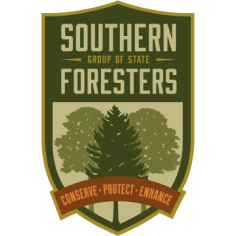Welcome to the Urban Forest Strike Team Refresher Courses for Task Specialists, Team Leaders and State Coordinators!
For an introduction and general instructions for the courses, watch the video below:
To learn more about the Strike Team professionals featured in the introductory video, click this link for their bios.
Click the plus next to each heading to read more about the Urban Forest Strike Team and the refresher courses.
In the Southern United States, natural disasters can leave a trail of destruction in their wake — and can change people’s lives. They can also change a community’s tree canopy and potentially cause long-term risks to safety. Urban Forest Strike Teams come to the aid of a region whose urban forest has been impacted by a natural disaster. Strike teams provide tree damage and risk assessments and Federal Emergency Management Agency public assistance information to communities. The Urban Forest Strike Team program works to increase public safety and to retain the viable urban tree canopy that is so important in our southern communities.
The Urban Forest Strike Team program was created to provide systematic mobilization, deployment, organization and management of state forestry agency personnel and arboricultural resources.
By working with the USDA Forest Service, state forestry agencies, local emergency management, and communities, Urban Forest Strike Teams assess, document and provide recommendations to help mitigate the effects of disasters to a community’s tree canopy throughout the South and nation.
Strike teams conduct tree risk assessments following disasters such as hurricanes, tornadoes, floods, ice storms and wildfires. Tree assessments help municipalities provide information for Federal Emergency Management Agency (FEMA) public assistance applications for debris removal.
For consistency and standardization, strike teams evaluate tree risk based on FEMA guidance on debris removal and arboricultural risk standards. A full strike team may include a team leader and assistant, 10 task specialists (five crews) and one GIS Specialist.
These teams identify trees that are damaged but can be saved and those trees that are a threat to public safety.
The refresher courses here are to help Task Specialists, Team Leaders and State Coordinators prepare for deployment and may be required in some states.
The Team Leader Training takes approximately one hour and 15 minutes to complete. Each of the nine course modules contains questions which must be correctly answered before continuing the training. Upon completion participants will be issued a certificate.
The Task Specialist Training takes approximately 1.5 hours to complete. Each of the five course modules contains questions which must be correctly answered before continuing the training. Upon completion participants will be issued a certificate.
The State Coordinator Training takes approximately 30 minutes to complete. Each of the two course modules contains questions which must be correctly answered before continuing the training. Upon completion participants will be issued a certificate.
In order to proceed and take the course(s), choose the button for either the Task Specialist, Team Leader or the State Coordinator Course.
If you have any questions or concerns contact your State Urban Forestry Coordinator.

